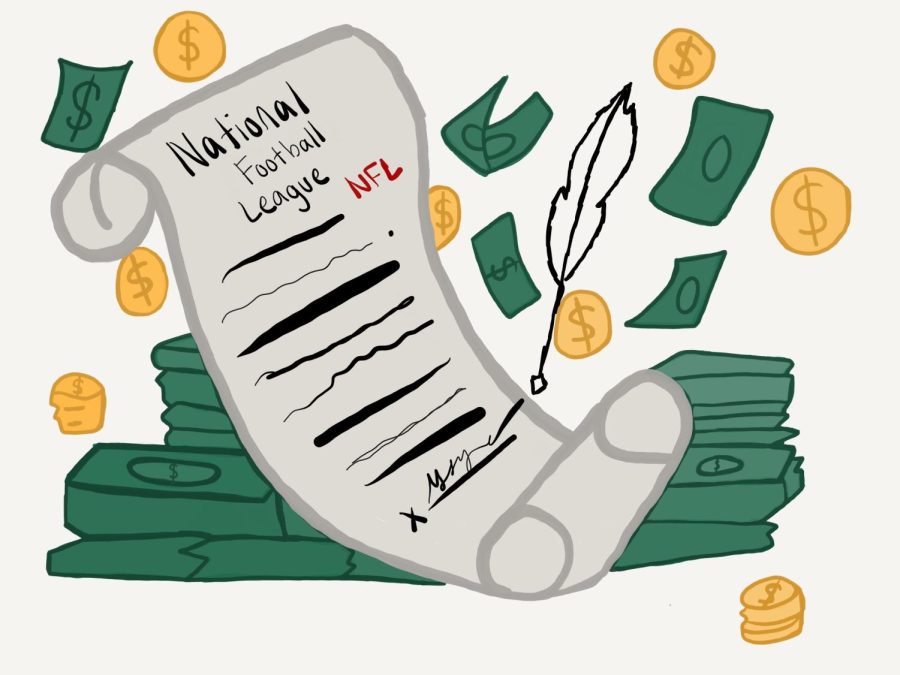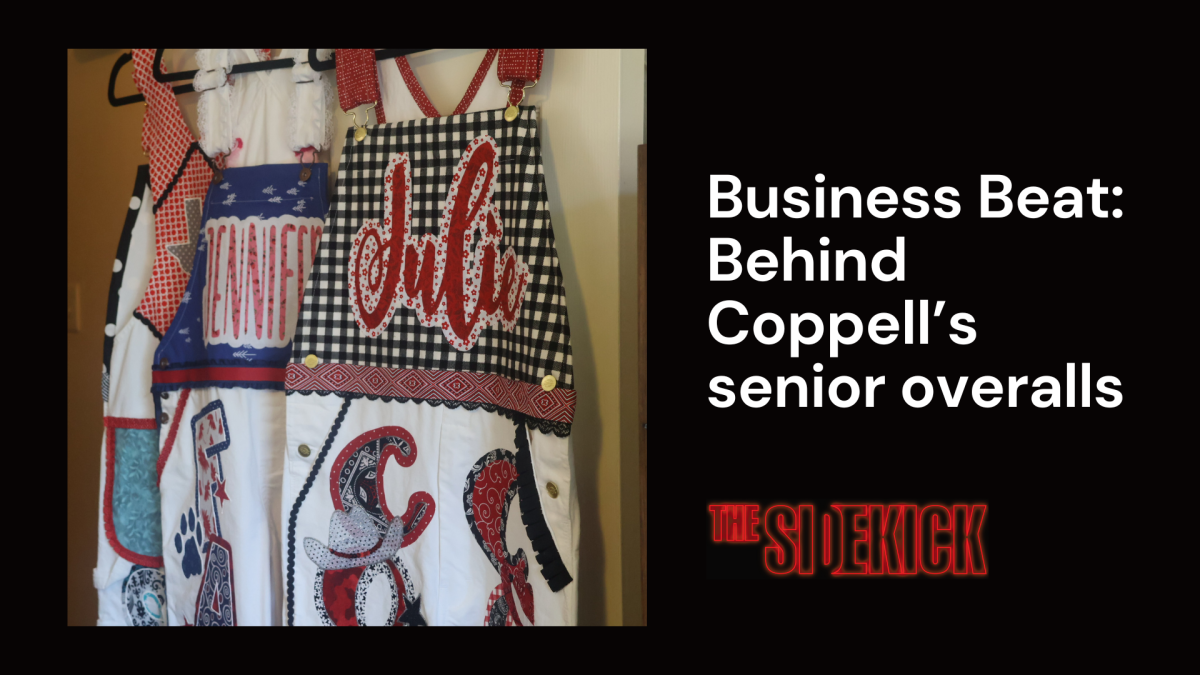Are NFL players overpaid?
A deeper look into holdouts and contracts
Football players make some of the most money in professional sports. Staff writer Araceli Reynoso goes into detail about NFL contracts and holdouts.
February 9, 2023
“Blue 180, set, hike!”
The quarterback snaps the ball, and the play becomes alive with energy. The score is tied, with only a few seconds left on the clock. The play goes on to be the game-winning touchdown, and cheers fill the air.
The excitement, the adrenaline, the thrill. I can’t even imagine what it feels like to be in the NFL, the sport that I love most.
For many of today’s young players, it has been their dream to play in the NFL. To grow up and be a successful quarterback such as the Green Bay Packers’ Aaron Rodgers, the Indianapolis Colts’ Peyton Manning or to win seven Super Bowls like former New England Patriots’ Tom Brady.
Some of these young players are already having success, such as Kansas City Chiefs’ Patrick Mahomes, who won Super Bowl LIV when he was just 24, Mahomes was going on in his third season in the league. Or there’s Cincinnati Bengals’ Joe Burrow, who played in Super Bowl LVI just last year, during his second season. These players have made it a reality, and are now in the league with these superstars.
But whether the position is quarterback, wide receiver, or running back, for any of their dreams to happen, these young players must put in hours of hard work and dedication.
All of their hard work pays off the moment that their name is called on draft day, when they sign that first rookie contract. I know that it’s probably one of the best feelings out there, taking the pen and signing the paper.
Even though the world of the NFL to me is bright and wonderful, at the end of the day I often remember that it is all about money. Players do not get to choose where they want to go when they are traded or cut. And sometimes, contracts are just the very reason why a player doesn’t play.
When I see player interviews, they are often asked about whether or not a certain play was difficult or how other teammates being hurt has affected their team. It is not always easy for them to answer. In the comments, I’ll see people saying how ‘it must be so hard for the players to run around throwing a ball for three hours’, and that because they’re ‘getting paid so much money, they really don’t have anything to complain about. Some people say that these players are overpaid.
I think there’s definitely somewhere to draw the line on whether or not NFL players are overpaid.
One thing that I dislike is when a player wants a certain amount of money, and will not practice until they receive a word or some sort of notice that they will get the contract they want. I feel that this hurts the team because that player could be a big part of their stronger plays, and they are not practicing.
For example, in 2019, Dallas Cowboys running back Ezekiel Elliott had one year left on his rookie contract. During this time, he chose to hold out on the season. Players eventually want to get paid, and at this point in his career, I believe that Ezekiel Elliott was deserving of his new contract, when the time came to be. In the 2019 season he had already run for 1,357 yards with 12 touchdowns. So after his rookie contract was done, Elliott signed his new contract which was a six-year, $90 million dollar contract.
Now, three years later, I do not feel that he has lived up to the potential of his contract, which has also hurt the team in other ways, such as cap space. In 2022’s offseason, The Cowboys were limited when it came to signing new players. In the end, The Cowboys were only able to sign wide receiver James Washington, who used to be with The Pittsburgh Steelers.
Dallas wanted to do more, because signing on more free agents during the 2022 offseason was a major goal for The Cowboys after struggling in the first round of the 2021 playoffs, and losing wide receiver Amari Cooper who was traded to The Cleveland Browns. Because of cap space, however, there was not enough room.
A similar situation could be seen with Pittsburgh Steelers’ running back Le’Veon Bell. Bell was drafted in the 2013 NFL draft in the second round. In 2016, Bell ran for 1,884 yards in 12 regular season games and went on to rush for 170 yards in the playoffs. It was a great season.
But after not coming to terms with a long term deal that same season, Le’Veon Bell chose to skip training camp until he signed his franchise-tag deal before the 2017 season started. Going into the 2018 season, once again Bell and the team were unable to come to terms with a deal, and he did not return to The Steelers that season.
While Pittsburgh did not completely exclude the thought of Bell returning, and even offered him a five-year deal that would have made him the highest paid running back in the league during that time, Bell did not take the offer. To him there was a “lack of money.” Bell’s current salary at the time was less than what Pittsburgh was offering him. Le’Veon Bell later signed with the New York Jets in 2019.
The contract was a four-years, $52.5 million with $35 million guaranteed. During this time, it made Bell the second highest paid running back in the league.
Both situations are similar. Receiving large contracts that the player wants can have the effects of not playing as well, or leading to other outcomes such as not being able to sign other players that are needed to help the team improve. In other ways, there can also be outcomes when a player holds out. This then makes it hard for the team, especially if it’s an important starter. The team won’t know if they will have their starter ready to play until they get paid.
While I do know that NFL players work extremely hard to get where they are, it just doesn’t sit well with me when they holdout, or do not perform well under a large contract. It does not seem fair to the rest of the team.
And when it comes down to that final touchdown or field goal, their decision matters the most.
Follow Araceli (@aracelireynoso_) and @CHSCampusNews on Twitter.










